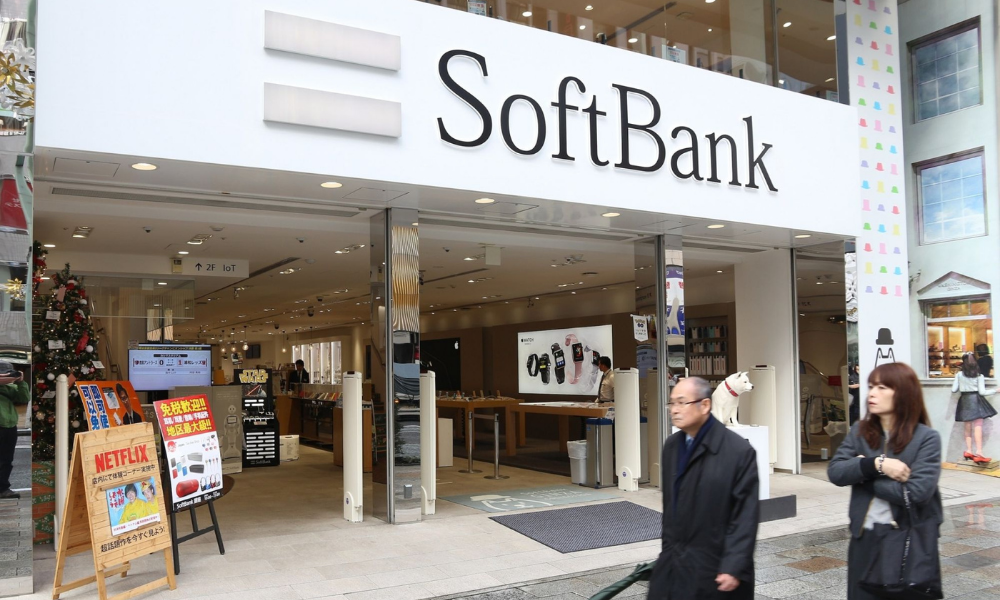
Billionaire Masayoshi Son is poised to set another record – and not the good kind. When he reports earnings for the March quarter Thursday, SoftBank Group Corp’s Vision Fund investment unit may have lost more money in one quarter than it ever has before.
The world’s largest tech fund is estimated to have lost about US$18.6 billion on its public portfolio alone during the quarter ended March 31, even greater than the record US$18.3 billion drop marked in the fiscal second quarter, according to Kirk Boodry, an analyst at Redex Research who publishes on SmartKarma.
That would mean a loss for the Vision Fund unit of about US$10 billion, accounting for SoftBank’s stake in each fund, Boodry estimates.
It’s a drastic reversal from a year ago when Son took the stage in Tokyo to announce SoftBank had earned more money in a single quarter than any Japanese company in history.
The company he founded about 40 years earlier hit net profit of 1.93 trillion yen (US$17.7 billion at the time), eclipsing Japan Inc heavyweights such as Toyota Motor Corp and NTT Corp.
“It’s not normal. Investors, markets are starting to get worried,” Boodry said. When it comes to “the scale or potential of losses, markets seem to be building in more downside in general”.
SoftBank’s two Vision Funds have been hit hard by plunging tech valuations as global interest rates climb and China tightens its regulatory grip on the industry. South Korea’s Coupang Inc and China’s Didi Global Inc have been among the biggest drags for the Vision Fund, with each of them posting their biggest quarterly share-price slump of 40 per cent and 50 per cent, respectively.
The Vision Fund’s biggest loss to date – 825.1 billion yen – came in the fiscal second quarter when global stock markets tumbled. The unit then regained profitability, earning 109 billion yen in the three months ended December 31.
The actual bottom line for the fiscal fourth quarter will hinge on how SoftBank marks the value of its vast number of privately-held holdings. These include ByteDance Ltd, which operates the popular short video platform TikTok, and India’s Oyo Hotels.
“There is much less visibility on this part of the portfolio, particularly at Vision Fund 2 where many of these investments are smaller or at an earlier stage,” Boodry wrote in a note to investors. Still, “SoftBank will likely take meaningful losses in the private portfolio too.”
A sharp downturn in global stock markets is working against SoftBank’s business model, which Son repositioned into an investment holding company with the Vision Fund in 2016. A series of scandals and missteps from WeWork Inc, Wirecard AG and Greensill Capital have led to international scrutiny.
Now jitters over further tech valuation falls have dented Son’s reputation and raised concern over the sustainability of its business. The lack of transparency over how much of the funds’ assets are collateralised is another factor fanning market anxiety.
“SoftBank’s entire business structure is dependent on one key assumption and that is ever-rising stock prices,” specifically in tech stocks, which are leading the current market sell-off, Amir Anvarzadeh of Asymmetric Advisors wrote in a note. This “fundamental flaw” is being increasingly exposed by the bear market, he said.
The Vision Fund lost money on 32 out of 34 public holdings last quarter, according to Nomura Securities Co analyst Daisaku Masuno. That includes South Korea’s Coupang (US$5.4 billion), Singapore’s Grab Holdings Ltd (US$2.4 billion), China’s Didi (US$2.4 billion), India’s Paytm (US$1.3 billion) and the US’s DoorDash Inc (US$1.1 billion).
Hot Topics
US Sanctions Alleged IS Child Trafficking Financiers
Biden Tests How Much He Can Ratchet Up The Pressure On Putin
Australia Faces Prospect Of Pre-Election Rate Rise As Inflation And Consumer Prices Soar
Unrealized losses in the public portfolio were in the range of US$37 billion to US$38 billion for fiscal 2021, according to Boodry.
All together, Vision Fund’s public portfolio companies are down more than 50 per cent from their all-time highs. Source: South China Morning Post